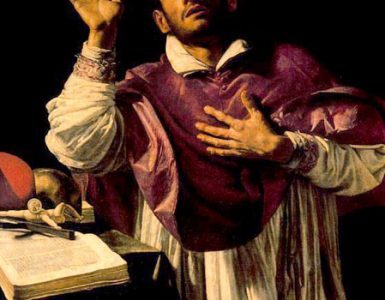A few months ago, I started digging a big hole in the backyard. My wife asked me why.
“I want to see if a barrel of rainwater will stay unfrozen during winter if it’s below the frost line,” I replied.
“But…why?” she asked.
“Because if the grid goes down, or there’s a natural disaster, we’ll need water,” I answered. “Water is life.”
“We have a sink,” she said, shaking her head and turning back to the dishes.
“Yeah, but…” I trailed off. I knew I had gone down a preliminary prepper rabbit hole prior to the little backyard excavation. It was an experiment, sure, and no real harm was done besides investing some sweat equity. But I was starting to feel like Noah and wondering what the Patriarch’s wife thought of his Ark project in the middle of the desert.
A degree of natural preparation, especially for those like me who are heads of households, is a matter of prudence and good old common sense. Some canned goods, extra water or filtration, and perhaps a small power bank is a reasonable security cache for a family. We see the scriptures extoling this virtue with the wise virgins who took enough oil for their lamps, while those who did not were shut out from the wedding feast (Mt 25:1-13). Of course, there’s also the story of Joseph’s prophetic foresight, instructing the Egyptians to store grain before the famine (Gen 47:13-23).
But when one crosses over into “hard-core prepper” territory, it’s another world. Underground bunkers, gun closets, years’ worth of MREs (Meals Ready to Eat), and a survivalist mentality can put one in a state of mind of paranoia and scarcity. One ensconced in this world imagines poachers and looters behind every tree and having to account for a hundred or more different scenarios in which one is forced to defend their land and survive at any cost. The parable of the rich fool in Luke’s gospel can be seen through one lens as a kind of superfluous decadence, but also as a man storing up massive amounts of goods as a surplus for times of hunger.
Aristotle believed that virtue lies in the mean between two vices. Justice dictates that we have a natural obligation to provide for our families first and then for our neighbors. But we also cannot neglect needful charity in so doing. St. John Vianney was inspired towards charity by the example of his parents, poor farmers who would share their scant food and lodging with those displaced by the French Revolution. There must be a balance between obsessively preparing for every possible doomsday scenario and a lackadaisical attitude towards such possibilities. We must also trust in Providence, even (and especially) in times of stress and upheaval, trusting that our Father will take care of us even in the midst of suffering.
Right before delivering His parable of the rich fool, Jesus instructs His disciples how to prepare for the coming persecution:
And when they shall bring you into the synagogues, and to magistrates and powers, be not solicitous how or what you shall answer, or what you shall say; For the Holy Ghost shall teach you in the same hour what you must say. (Lk 12:11-12)
We should take a cue here from our Lord; sometimes we need to admit that our desire for security and predictability can veer into the territory of withholding trust in the goodness of God even when things go south. As Mother Angelica used to say, “Faith is one foot on the ground, one foot in the air, and a queasy feeling in the stomach.” Part of the nature of Providence is that it demands trust first, and then provides the blessing—not the other way around. We see this in the example of Abraham, who trusted in God, and it was “[credited] to him as righteousness” (Gen 15:6). He later became known as our “father in faith.”
Recently, I had a friend die quite suddenly. He was a good and faithful Catholic, a fierce evangelist, and a devotee of the Lord Christ. He had nothing to fear in going to meet his Maker, even at such an unexpected time, because as St. Robert Bellarmine said, “those who live well, die well.” My friend didn’t live his life waiting for the other shoe to drop, but he did live with a somber recollection of the seriousness of this life—that we only get one shot, and this isn’t a trial run.
Like the wise virgins, he had prepared well spiritually in this life through prayer, fasting, confession, and regular Mass attendance, not to mention remaining in a state of grace. When we take this more or less “common sense” approach to our spiritual lives, we too can live in a state of peace rather than paranoia, that God will give us the means to be saved if we cooperate with that grace.
In a letter to Francis Borgia in 1555, St. Ignatius wrote:
I consider it an error to trust and hope in any means or efforts in themselves alone; nor do I consider it a safe path to trust the whole matter to God our Lord without desiring to help myself by what he has given me; so that it seems to me in our Lord that I ought to make use of both parts, desiring in all things his greater praise and glory, and nothing else.
This is a good lesson of wisdom resting in the mean between extremes. With God doing the “heavy lifting” for us, it frees us up to live joyfully and lightly in this life because we don’t have to account for every scenario of our demise or hide from the world.
We know not the hour of the next disaster, the outcome of the election, or the time of our own death, and that is how we are meant to live so as not to descend into anxiety and fear—which is of the Devil. God will provide the ammunition for our trial when we go before those who assault us. Pray. Hope. Don’t worry.
Photo by Sandie Clarke on Unsplash












